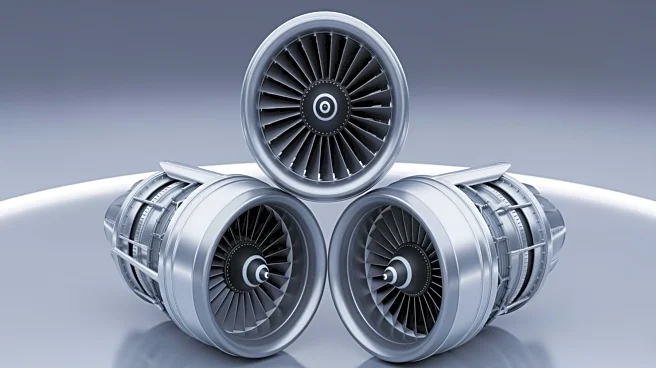What's Happening?
Airbus, Thales, and Leonardo have signed a Memorandum of Understanding to merge their space divisions, aiming to better compete in the global market, particularly against SpaceX. Under the agreement, Airbus will
hold 35% ownership, while Leonardo and Thales will each hold 32.5%. The new venture, expected to launch by 2027, will employ around 25,000 workers and generate approximately €6.5 billion in annual revenue. Venture capital firms express optimism that startups will remain competitive despite the merger, as the integration process will take time and may not immediately enhance the agility of the combined entity.
Why It's Important?
The merger of these major European space companies represents a strategic move to consolidate resources and enhance competitiveness in the international space industry. While the merger aims to create a formidable competitor to SpaceX, venture capitalists believe that startups will continue to thrive, as the merger process will be lengthy and complex. The consolidation could impact government procurement decisions, potentially favoring larger players over startups, which may affect innovation and growth in the European space ecosystem.
Beyond the Headlines
The merger raises questions about the future of the European space industry, particularly regarding competition and innovation. While the new venture aims to compete globally, there is skepticism about its ability to rival SpaceX's agility and innovation. The merger could reshape procurement practices, influencing how governments and institutions engage with startups and established companies. The success of the merger will depend on regulatory approval and the ability to integrate operations effectively.










